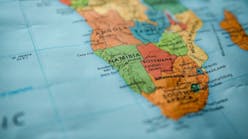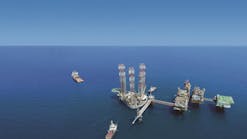Alex Abdallah
Offshore Magazine
LILLESTRØM, Norway -- The OneGeology portal was officially launched at the 33rd International Geological Congress (IGC) in Lillestrøm, Norway.
OneGeology is a global project that earth and computer scientists from 79 nations are working together on to produce the first digital geological map of the world available on the Internet.
The data aims to help find natural resources, plan for hazards, monitor impacts of climate change, manage waste, and store carbon.
"The project is doing the same for the rocks beneath our feet that Google does for maps of the Earth's surface," according to OneGeology.
OneGeology aims to create consistent standards for geological data, and make it easy for different software and datasets to communicate with each other to access the data. Its goal is to be able to transfer know-how and expertise to anyone, considering that different nations have differing abilities to participate.
A new web language called GeoSciML (GeoScience Markup Language) was written for geology, which allows all nations, regardless of their development status, to share data with each other and the public.
OneGeology began at a kick-off workshop in March 2007, in Brighton, UK, after the concept emerged in 2006.
Simon Winchester, author of the book, The Map that Changed the World, about the life of the geologist, William Smith, presented the OneGeology project at IGC.
"We will strip the world, we will see the clockwork behind the clock," he said.
OneGeology is supported by the UN Educational, Scientific, and Cultural Organization and six other international umbrella bodies. It is the flagship project for International Year of Planet Earth.
The year 2008 has been dedicated by the United Nations as the International Year of Planet Earth with aims to promote the importance of earth sciences to the wider public.
Seven themes relating to the priorities of the International Years of Planet Earth parallel the IGC symposia program. Each day will highlight a theme, focusing on both the scientific and societal impacts.
The themes include global geology; early life and evolution; climate change; geohazards; water, health, and environment; mineral resources; energy resources and the future; and planetary geoscience.
IGC takes place every four years. The first IGC was held at the Paris Exposition in 1878, with 310 members from 23 countries participating. This year, 6,000 participants from 115 countries are expected.
The IGC is a nonprofit scientific and educational organization to encourage the advancement of fundamental and applied research in the earth sciences worldwide.
08/12/2008




